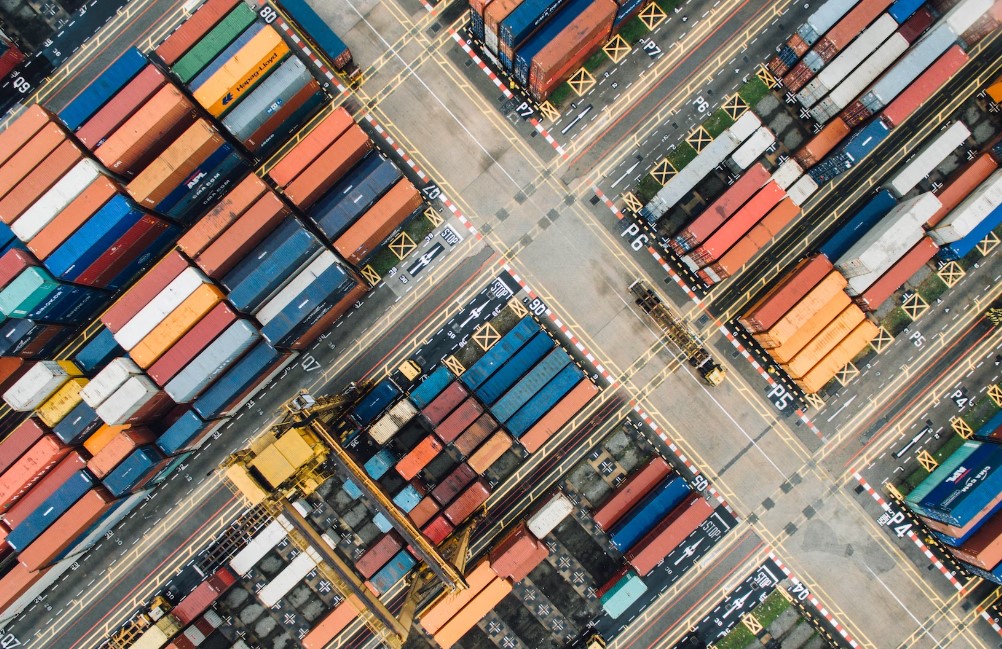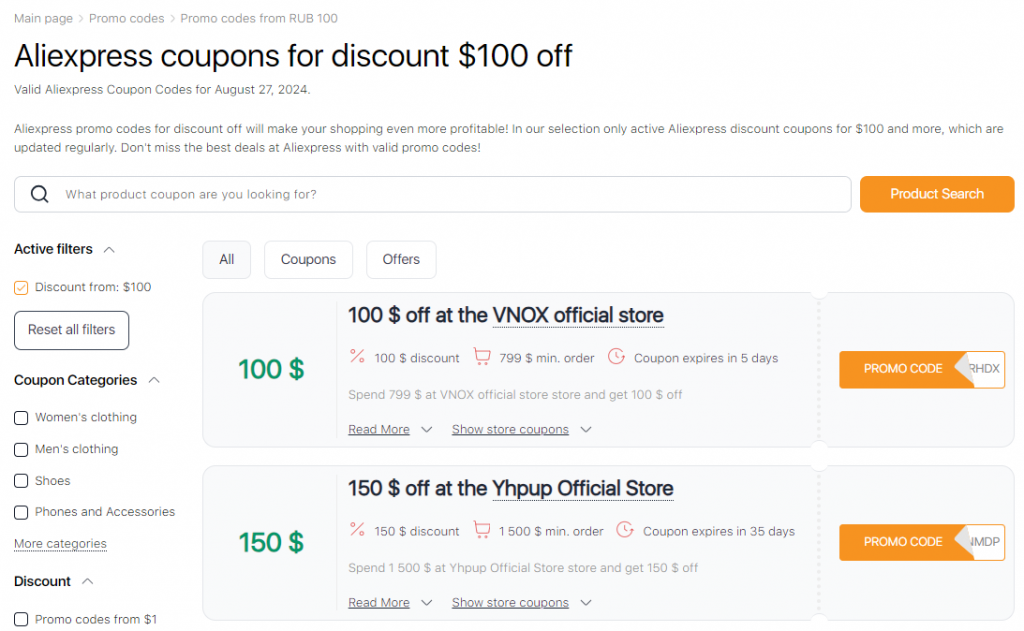How to buy in bulk on Aliexpress
Reselling Chinese goods or using them in large quantities in commercial activities is an extremely popular activity in our country as well. There have even been several major scandals when celebrities bought wholesale goods on Aliexpress, put their logos on them and resold them at a huge markup, passing them off as unique designs. Small showrooms selling Chinese clothes, shoes and accessories appear on social networks every day. One of the most popular companies that deliver batches of goods to the market is Alibaba Group, to which AliExpress belongs. In this article, we will analyze in detail how to buy wholesale on Aliexpress.
Might be interesting: Difference between Alibaba and AliExpress.
Whether it is possible to buy wholesale on Aliexpress
AliExpress in 2026 is a platform where you can buy goods from China purely in retail and small wholesale. In addition, at the moment it works only with individuals, you can pay there only by card and get closing documents from the seller is almost unrealistic. If you need a large batch of things or want to order as a legal entity, you need to either find an intermediary or turn to the B2B platform from Alibaba Group – Alibaba.com. However, in other cases, wholesale purchases on Aliexpress are possible.

Features of wholesale orders
Wholesale prices on Aliexpress
Since many stores in the Chinese marketplace sell goods of their own production, they set a low price on their trade offers. Large batches can be bought cheaper.
Lack of interface for wholesale purchase
Since at the moment AliExpress works only with individuals and supplies only small experience, in the new version of the site there is no interface for what to order in bulk from Aliexpress. They’ve also removed the “Wholesale” section. Buyers are encouraged to manually add the quantity of goods they would like to purchase. Otherwise, it is not clear how to buy wholesale on Aliexpress.

Prohibited goods
These are goods whose importation or sale is restricted or prohibited in the country for various reasons including safety, health, moral and environmental considerations. The following are some of the main categories of goods that may be prohibited or restricted when imported through customs:
Weapons and Ammunition
The importation of bulk or wholesale shipments of arms, ammunition, and explosives is strictly prohibited without the proper permits and licenses. This restriction applies to various weapon categories, including small arms, edged weapons, pneumatic weapons, and firearms. Wholesale or bulk importers dealing in firearms and ammunition must comply with strict security regulations and obtain explicit authorization from the relevant authorities before attempting bulk shipments.
Drugs and Psychotropic Substances
The bulk or wholesale importation of illegal drugs and psychotropic substances is strictly forbidden under international drug control laws. Narcotics, synthetic drugs, and certain prescription medications classified as controlled substances are heavily regulated. Even pharmaceutical companies handling wholesale or bulk drug shipments must comply with strict licensing and regulatory procedures to ensure legal importation.
Alcoholic Beverages and Tobacco Products
Importing bulk shipments of alcoholic beverages and tobacco products is subject to strict quotas and legal requirements. Many regions impose high import duties, excise taxes, and health regulations on these items. Wholesale alcohol and tobacco distributors must ensure compliance with tax policies, age restrictions, and regional limitations on bulk imports to avoid penalties, confiscation, or revocation of trading licenses.
Prohibited Substances
The wholesale or bulk importation of hazardous chemical, biological, and radioactive substances is highly restricted due to safety and environmental concerns. These include toxic industrial chemicals, bioweapons, hazardous biological agents, and nuclear materials. Businesses involved in bulk shipments of chemicals for industrial or scientific purposes must obtain specialized government clearances before importing.
Counterfeit Goods
The bulk importation of counterfeit goods, including fake branded products and counterfeit money, is strictly illegal. Authorities enforce these regulations to protect intellectual property rights and prevent fraud. Wholesale distributors must verify the legitimacy of their suppliers to ensure they are not involved in counterfeit product trading, as customs officials frequently inspect bulk shipments for brand violations.
Toxic and Hazardous Substances
Certain toxic and hazardous materials are subject to strict import controls when shipped in bulk or wholesale quantities. This includes industrial chemicals, pesticides, hazardous waste, and corrosive or explosive substances. Importers handling bulk shipments of hazardous materials must comply with environmental safety regulations and obtain the necessary import approvals.
Animals and Plants
The bulk importation of live animals and plants is regulated under international laws to prevent the spread of diseases and protect biodiversity. Some species are restricted under the Convention on International Trade in Endangered Species (CITES). Importers dealing in wholesale shipments of livestock, pets, or plant materials must secure veterinary health certificates, quarantine approvals, and environmental clearances.
Medical Drugs
Many medical drugs and pharmaceutical products are regulated, and their bulk or wholesale importation often requires a prescription, government authorization, or industry-specific licensing. Controlled substances, opioids, and herbal medicines with restricted ingredients are particularly monitored. Wholesale pharmaceutical importers must comply with Good Manufacturing Practices (GMP) and health authority requirements to ensure legal entry of bulk medical supplies.
Antiques and Cultural Property
The export and bulk importation of antiques and cultural property are heavily regulated to prevent illegal trade and smuggling. Items such as ancient manuscripts, religious artifacts, and historical documents require government permits before shipment. Businesses dealing in wholesale shipments of antiques must comply with national heritage protection laws and obtain cultural property clearance.
Foodstuffs
The bulk importation of food products is subject to strict sanitary and safety regulations. Certain foodstuffs, such as dairy, meat, and perishable fruits, require veterinary and phytosanitary certification. Wholesale food importers must ensure compliance with food safety regulations, proper labeling, and health inspection requirements to meet international food standards.
How to find wholesalers on Aliexpress
A reliable seller is the key to a successful transaction. Unfortunately, in 2026, AliExpress site presents only a truncated, uninformative rating of stores. To find an honest seller, you will need to study a lot of reviews of his goods. You can also install a free browser extension AliHelper, which will show a detailed objective rating of any store by five criteria. You can read more about it in our article “Seller Rating on Aliexpress“.

Tips for buying in bulk on Aliexpress
Use coupons for wholesale buying
There are many promotions on the Chinese platform for those who make large orders, buying in bulk. Most stores offer coupons that are activated if you buy a lump sum of a certain amount.
On the AliExpress Coupons page, you can sort offers by various criteria, including product categories, discount amounts and total cost of purchases. You can search for specific promotions both by seller and by individual products using the search bar. In addition, offers can be filtered by month. To activate a promo code on Aliexpress, you should click on the orange button in the section of the desired promotion, copy the code and enter it when completing the purchase. Constant updating of the database ensures that only current discount offers are available.

Contact the wholesale seller
Before making a bulk purchase, contact the store representative through the “Write” section on the seller’s page. Ask about the availability of discounts and all the necessary details of the transaction: the availability of the required quantity of goods, color, model, configuration, availability of instructions and their language (if necessary), shipping costs, etc. Effective communication with suppliers will help to avoid misunderstandings.
How to negotiate with Aliexpress sellers about buying in bulk or wholesale
Custom pricing for larger volumes
When placing a bulk or wholesale order on AliExpress, you don’t have to settle for the listed price. Many sellers are open to offering custom pricing if you’re ordering in large quantities. To start the conversation, simply message the seller and mention your intended order volume. Politely ask if there are any discounts for bulk or wholesale purchases and whether they can send you a price quote. It’s common for sellers to offer better rates once they see you’re a serious buyer.
Asking for free shipping or gifts
In addition to negotiating the unit price, it’s worth asking about free shipping or small bonus items when placing a bulk or wholesale order. Since your total spend is higher, sellers are often more flexible with shipping arrangements and might even include a few extra units or promotional gifts. You can phrase your message like this: “If I place a bulk or wholesale order, could you offer free shipping or include some samples?” It never hurts to ask — and many sellers are willing to accommodate.
Using AliExpress chat effectively
AliExpress chat is your primary tool for initiating and maintaining communication with sellers, especially when you’re planning to place a bulk or wholesale order. To get the best results, it’s important to approach the conversation with clarity and professionalism. Start by introducing yourself as a bulk or wholesale buyer and clearly state your intentions — whether you’re looking for better pricing, faster shipping, or customized packaging.
When messaging the seller, include specific details about your bulk or wholesale request: the product name or link, the exact quantity you’re interested in, and your preferred shipping method. Sellers are much more responsive when they understand that a bulk or wholesale deal is on the table. Mentioning that you’re planning long-term cooperation or repeat purchases can also help you negotiate better terms for your bulk or wholesale orders.
If you’re facing a language barrier, consider using simple language or automated translation tools — most sellers are used to international communication, especially when it involves to buy bulk or wholesale deals on AliExpress. Be polite, ask direct questions, and clarify all details before placing your order to avoid misunderstandings.
Finally, building a strong rapport through AliExpress chat can lead to long-term benefits. Once a seller sees that you’re a serious bulk or wholesale buyer, they may prioritize your messages, offer exclusive discounts, or even notify you first when new stock arrives. In short, effective use of the chat function can significantly improve your bulk or wholesale buying experience on AliExpress.
Purchasing wholesale on AliExpress can become a profitable business, but this process requires careful planning. Choosing the right suppliers, quality control, and studying legislation and the nuances of customs clearance are the keys to business success. Now you know how to buy wholesale on Aliexpress.








